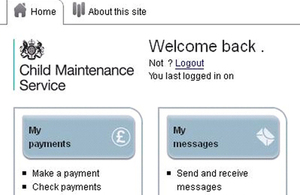
03 Oct High Court hears Judicial Review of Child Maintenance Service Failings
A judicial review of the flawed operation of the Child Maintenance Service – the government programme responsible for the collection and payment of child maintenance between separated parents – is taking place over two days (3rd and 4th October 2023) at the High Court (at the Royal Courts of Justice). This follows the grant of permission for judicial review in the same case at a permission hearing in the High Court in March 2023.
The case – brought by 4 single mothers and/or their children – challenges the delays and inefficiencies in their cases that have led to substantial arrears accruing over many years and the repeated failures on the part of the CMS to enforce payment against the non-resident parents. In several of the cases, there is a history of domestic violence and the case highlights how CMS fails to adequately prioritise this substantial cohort (60% of new CMS customers identify as victims of domestic violence) for investigation of the non-resident partners’ financial affairs and for enforcement action. The relevant legislation – the Child Support Act 1991 – prevents parents from taking enforcement action themselves, meaning they are dependent on CMS to take these steps in their cases.
The Claimants argue that the substantial record of failings in their cases amount to a breach of the government’s common law duty to promote the purpose of the relevant legislation (the Child Support Act 1991) and a breach of its obligations under the Human Rights Act 1998 not to deprive persons of their possessions; to protect victims of domestic violence; and not to discriminate against this group. They are asking the court to declare that the failings in their cases were unlawful so that rigorous reforms of CMS follow. In developments possibly not unconnected to the case, the government has started to introduce reforms in some of the areas highlighted by the case: in the Child Support (Enforcement) Act 2023 and The Child Support Collection (Domestic Abuse) Act 2023 and the announcement, on the eve of the hearing, of further planned reforms in relation to enhanced enforcement.
A DPG team of Polly Glynn, Daniel Carey, Tabatha Pinto and Catherine Dowle act for the Claimants. DPG colleagues Megan Smith, Ralitsa Peykova and Charlotte Cook have previously worked on the case. Zoe Leventhal KC and Emma Foubister of Matrix Chambers are instructed as counsel, along with Emma Dring of Cornerstone Barristers.
The charity Gingerbread has received permission to intervene and is separately represented by Reed Smith solicitors and Darryl Hutcheon of Matrix Chambers. Several organisations have assisted with evidence in relation to the case: the Child Poverty Action Group (CPAG), Surviving Economic Abuse and Women’s Aid.
